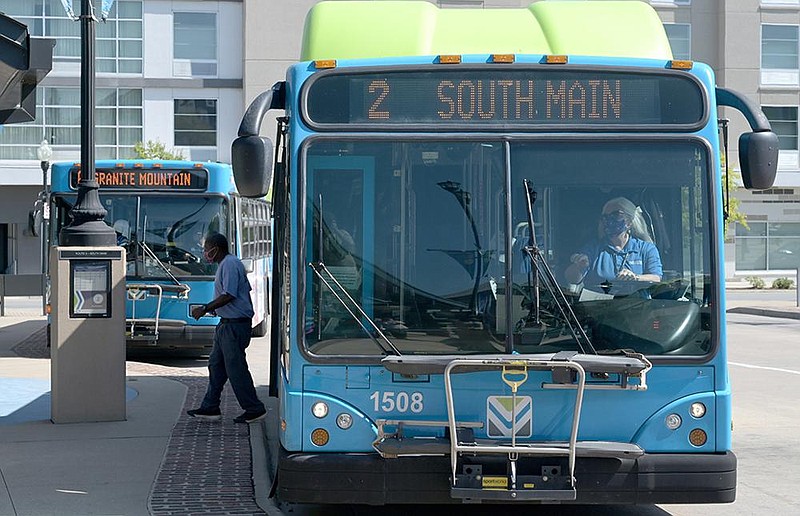The board of Rock Region Metro on Thursday signed off on a plan to transfer responsibility and ownership of certain state-run highways to local governments as the 30 Crossing project gets underway because of the impact of construction on Rock Region's downtown streetcar system.
According to the agreement of understanding approved by the regional transit agency, the Arkansas Department of Transportation will cover costs associated with rebuilding the downtown streetcar system, which will be necessary because of the 30 Crossing construction.
In exchange, Little Rock and North Little Rock as well as Pulaski County will accept ownership of portions of certain highways within their jurisdictions.
The Interstate 30 construction project will expand the heavily used Central Arkansas traffic corridor that spans the Arkansas River between North Little Rock and Little Rock. The infrastructure improvements associated with the project include reconstruction of the I-30 bridge over the river, a split-diamond interchange at I-30 and Arkansas 10, plus a new, wider bridge over I-30 at Sixth Street.
The Transportation Department has put the full cost at more than $1 billion.
During Thursday's board meeting, which was conducted over Zoom, Little Rock City Manager Bruce Moore described the resolution as "a very viable plan going forward to save Rock Region and the cities and the county a lot of money."
Board members adopted the resolution during a voice vote.
Streetcar tracks and the poles supporting the streetcar electrical structure, known as the overhead catenary, are parts of Rock Region's system that will need to be rebuilt to allow the 30 Crossing project to be completed.
Under the agreement, the Transportation Department will pay for and implement those modifications to the streetcar system.
In return, Little Rock will take over a portion of U.S. 70B, which traverses the city as South University Avenue, from Colonel Glenn Road and Asher Avenue until the point where the road terminates south of I-30 at the highway's frontage road ramps.
Additionally, Pulaski County and North Little Rock will assume responsibility for the sections of Arkansas 161 in their jurisdictions between Jacksonville's city limits and U.S. 70, according to the agreement.
With the vote Thursday, Rock Region Metro joins several other partners to the resolution that have already approved the plan: Little Rock, North Little Rock and Pulaski County. The only agency that has yet to approve the agreement, the Transportation Department, is expected to approve the plan Dec. 9 during a meeting of the Highway Commission.
Charles Frazier, chief executive officer of Rock Region Metro, said the arrangement whereby local governments take over responsibility of the state highways will continue in perpetuity.
The streetcar system has been shut down since the spring because of the coronavirus outbreak. 30 Crossing work officially began this fall.
Because Federal Transit Administration funding was used to help build the streetcar system, Rock Region Metro must return the system to its original working condition "while there is remaining FTA interest," according to the text of the agreement.
Frazier said the work will modify the streetcar system with the goal of getting the system's infrastructure back to its original form and use. Construction work will rely on contractors selected by the Department of Transportation and Rock Region Metro, he said.
"The project is being done in phases," Frazier wrote in an email. "For the streetcar work, there is phase 1A, 1B and 2. Phases 1A and 1B will be done by the project contractors selected by [the Transportation Department]. For Phase 2, Rock Region METRO will select the contractors and be reimbursed by [the department]."
